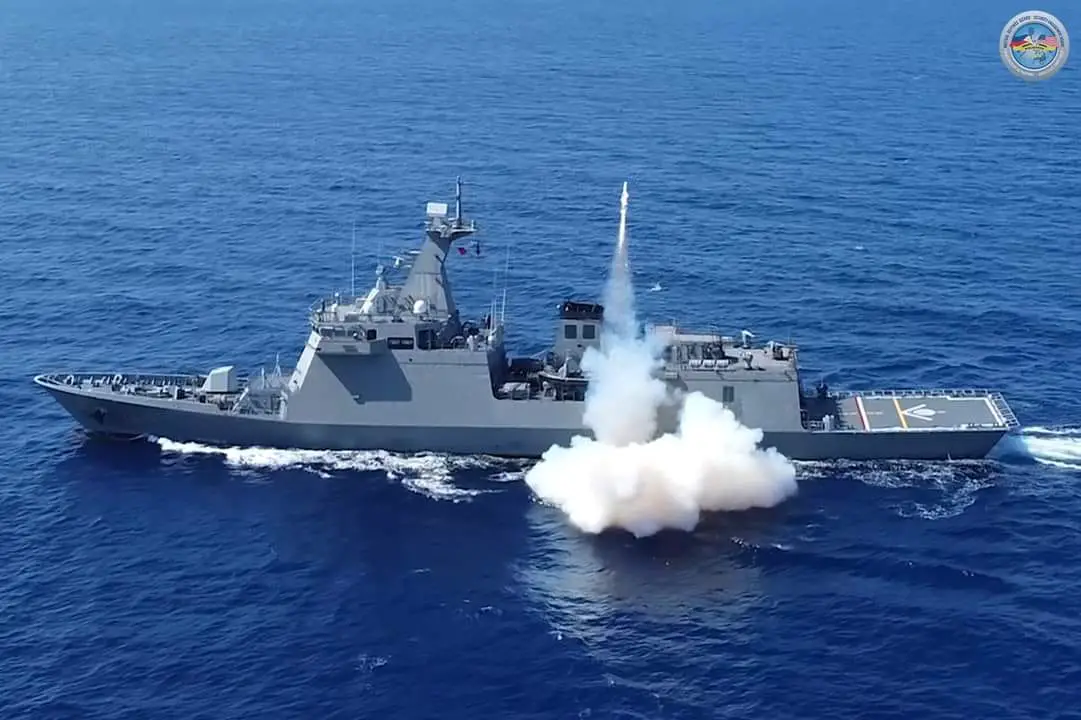The Philippine Navy (PN) on Wednesday said its missile frigate BRP Jose Rizal (FF-150) fired its LIG Nex 1 C-Star “sea-skimming surface-to-surface anti-ship cruise missile” system at the decommissioned naval tanker BRP Lake Caliraya. Speaking on the sidelines of the Navy’s Maritime Security Symposium in Quezon City, PN spokesperson Commander John Percie Alcos said the activity was a maritime strike phase of the US-Philippines “Balikatan” exercises in Laoag City, Ilocos Norte. Before the launch of the C-Star surface-to-surface missile, fast attack interdiction craft BRP Lawrence Narag (PG-907) fired its NLOS (non-light of sight) missile system at the decommissioned tanker.
“The firing was conducted around 9 a.m. and both missiles successfully hit the target. I cannot disclose the specific salvo size to sink or neutralize the specific target. For that target, it requires more than one but this morning, we tested the accuracy of both missiles. I would not specifically tell you what the Air Force fired but I would impart that on the Navy side, we were able to successfully fire our missiles,” John Percie Alcos said.

The BRP Jose Rizal fired its C-Star missile system at a distance of 20 nautical miles from the target vessel. After the PN vessels, Philippine Air Force planes also tested their missiles and other munitions on the former BRP Lake Caliraya. The C-Star’s warhead is known to weigh around 250 kilograms and was delivered to the PN along with its launchers some two or three years ago. the test firing of the missile shows that the AFP Modernization Program is working, noting that the firing of the C-Star is not aimed or designed towards any particular threat, country or state.
The SSM-700K C-Star (Haeseong, Sea Star) is a ship-launched sea-skimming surface-to-surface anti-ship cruise missile developed by the South Korean Agency for Defense Development (ADD), LIG Nex1 and the Republic of Korea Navy in 2003. A mid-range cruise missile, the Haeseong was developed for over-the-horizon warfare, capable of attacking targets out to 150 km (93 miles). Traveling at ultra-low sea-skimming altitudes, it uses a high-subsonic, high-capacity turbojet, with an inertial navigation system (INS) and Global Positioning System (GPS) to guide it toward its target, using a radar altimeter to maintain altitude.
















